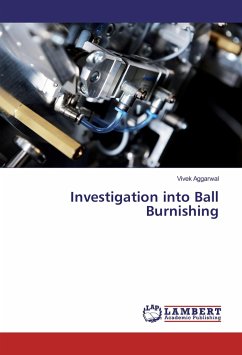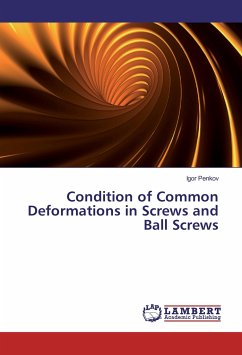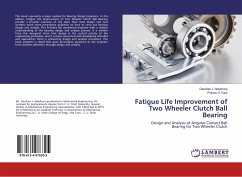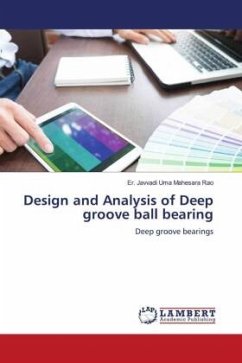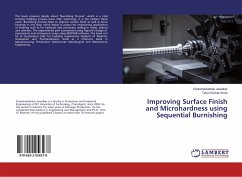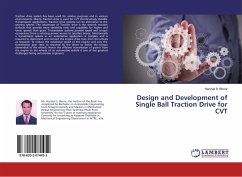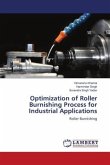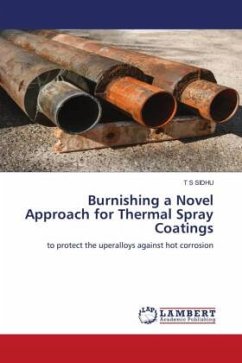Poor surface finish on a machined surface results in excessive wear of rubbing surfaces. Moreover, many important functional properties such as wear resistance, fatigue strength and corrosion resistance depend upon surface finish. Hence, fine finishing processes are needed in machining the surfaces of many critical components to obtain a very high surface finish. These include Honing, Lapping, Grinding, Super Finishing and Burnishing. Ball Burnishing is a chipless, cold working, surface finishing process in which the peaks of metallic surfaces are displaced to fill the valleys by plastic deformation. In this work, an experiment involving four input process parameters (Rotational Speed of Work piece, Longitudinal Feed of Tool, Vertical Burnishing Force and Number of Tool Passes) each having five different levels has been designed and conducted using a well-known design of experiment approach-Response Surface Methodology. Surface Finish and Surface Hardness have been taken as response parameters. Being a non-ferrous metal, Pure Aluminium has been chosen as a work material. During investigations, Ball Burnishing process produced significantly high Surface Finish and Surface Hardness.
Bitte wählen Sie Ihr Anliegen aus.
Rechnungen
Retourenschein anfordern
Bestellstatus
Storno

